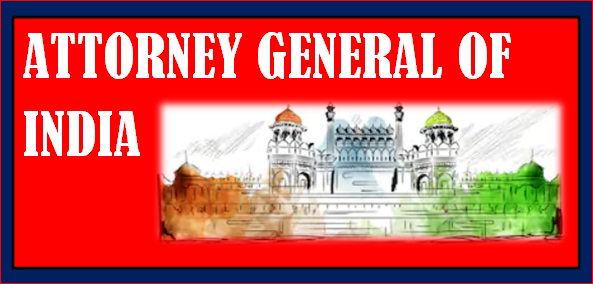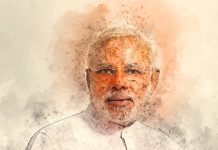- Which article states about the Attorney General of India?
a. 73
b. 75
c. 77
d. 76
Ans: d
- Who appoints the Attorney General of India?
a. Prime minister
b. Cabinet Ministers
c. President
d. Speaker of Lok Sabha
Ans: c
- It is a convention that after the change of the Government, the Attorney General of India resigns and the new Government appoints one of its own choices.
- The President shall appoint a person who is qualified to be appointed as a________________ to be the Attorney General of India?
a. Judge of High court
b. Judge of Supreme Court
c. MLA
d. Speaker of Rajya Sabha
Ans: b
- Who is called as the first legal officer of the Government of India?
a. Advocate General
b. Attorney General
c. CAG
d. Solicitor General
Ans: b
- Who is the first Attorney General of India?
a. Santosh Kumar
b. Ashutosh Mitra
c. AK Mishra
d. C.Setalvad
Ans: d
- On whose pleasure The Attorney-General of India shall hold the office?
a. President
b. Prime minister
c. Member of Parliament
d. Speaker of Lok Sabha
Ans: a
- The Attorney General of India shall receive such remuneration as the _______may determine?
a. Parliament
b. President
c. Prime minister
d. Cabinet Ministers
Ans: b
- The Attorney General of India is prohibited to take an appointment as a Director in any company.
- Who advises the Government of India on any legal matter?
a. Speaker of Rajya Sabha
b. Prime minister
c. Advocate General
d. Attorney General of India
Ans: d
- The Attorney General of India shall perform such other duties of a legal character, as may from time to time be referred or assigned to him by the_________?
a. President
b. Prime minister
c. Minister of Finance
d. Speaker of Rajya sabha
Ans: a
- The Attorney General of India discharge the functions conferred on him by or under this Constitution or any other law for the time being in force.
- In the performance of his duties, the __________shall have right of audience in all courts in the territory of India?
a. President of India
b. Prime Minister
c. Cabinet Secretary
d. Attorney General of India
Ans: d
- Who appears on behalf of the Government of India in all the proceedings including the appeals, suits, etc in the Supreme Court of India in which the Government of India is concerned?
a. President
b. CAG
c. Prime minister
d. Attorney General of India
Ans: d
- The Attorney General of India has the right to take part in the proceedings of the Parliament _________?
a. with a right to vote
b. without a right to vote
c. heads the joint sitting of the house
d. none of the above
Ans: b
- Although he is not a member of either house of the Parliament he enjoys the right to attend and speak in the deliberations and meetings.
- Attorney General of India is entitled to all the privileges and immunities as a___________?
a. Cabinet Minister
b. Speaker of Lok Sabha
c. Prime minister
d. MP
Ans: d
- The Attorney General of India is not paid a salary but a retainer that is determined by?
a. Prime minister
b. President
c. Member of Parliament
d. CAG
Ans: b
- The retainer of the Attorney General of India is equal to the salary of a judge of Supreme Court
- The Attorney General of India can also represent the Government of India in any reference made by the President of India to the Supreme Court of India under the Article ______ of the Constitution?
a. 125
b. 180
c. 114
d. 165
Ans: d
- The _______can neither advice nor hold a brief against the Government of India in cases in which he is called upon to advise the Government of India?
a. Attorney General of India
b. CAG
c. Prime Minister
d. President
Ans: a
- Who should not defend accused persons for criminal prosecutions without permission if the Government of India?
a. An advocate of Sessions court
b. An advocate of District court
c. An advocate of High court
d. Attorney General of India
Ans: d
- Who is assisted by a two Solicitor General and four Additional Solicitors General?
a. President
b. Prime Minister
c. Attorney General of India
d. CAG
Ans: c
- First Solicitor General of India?
a. C.K.Daphtary
b. H.N. Sanyal
c. S.V. Gupta
Ans: a
- Who is called as the second law officer of the country?
a. Advocate General
b. Attorney General of India
c. CAG
d. Solicitor General of India
Ans: d
21. The _________ represents the Union and the States before the courts but is also allowed to take up private practice provided the other party is not a state?
a. Advocate General
b. Attorney General of India
c. CAG
d. Judge of High court
Ans: b
- The Solicitor General of India is appointed for the period of ______ years?
a. 6
b. 7
c. 4
d. 3
Ans: d
- Like whom the Solicitor General & the Additional Solicitors General can also advise the Government and can also appear on behalf of the Union of India?
a. Judge of High court
b. Advocate General
c. Attorney General of India
d. Speaker of Lok Sabha
Ans: c
- The posts Solicitor General & the Additional Solicitors General are __________ posts?
a. constitutional posts
b. statutory posts
c. temporary posts
d. none of the above
Ans: b






Some truly good information, Gladiolus I detected this.
Thank you
Hello my friend! I wish to say that this article is amazing, nice written and include approximately all important infos. I¦d like to look more posts like this .
Sure
Really clean website , thanks for this post.
Thank you